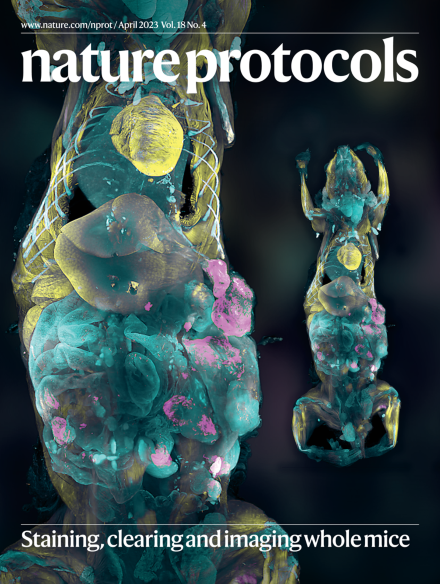Plant sperm cell sequencing for genome phasing and determination of meiotic crossover points
IF 16
1区 生物学
Q1 BIOCHEMICAL RESEARCH METHODS
引用次数: 0
Abstract
Haplotype phasing represents a pivotal procedure in genome analysis, entailing the identification of specific genetic variant combinations on each chromosome. Achieving chromosome-level genome phasing constitutes a considerable challenge, particularly in organisms with large and complex genomes. To address this challenge, we have developed a robust, gamete cell-based phasing pipeline, including wet-laboratory processes for plant sperm cell isolation, short-read sequencing and a bioinformatics workflow to generate chromosome-level phasing. The bioinformatics workflow is applicable for both plant and other sperm cells, for example, those of mammals. Our pipeline ensures high-quality single-nucleotide polymorphism (SNP) calling for each sperm cell and the subsequent construction of a high-density genetic map. The genetic map facilitates accurate chromosome-level genome phasing, enables crossover event detection and could be used to correct potential assembly errors. Our bioinformatics pipeline runs on a Linux system and most of its steps can be executed in parallel, expediting the analysis process. The entire workflow can be performed over the course of 1 d. We provide a practical example from our previous research using this protocol and provide the whole bioinformatics pipeline as a Docker image to ensure its easy adaptability to other studies. This protocol describes a method for haplotype phasing plant genomes, using gamete cells to enable chromosome-level phasing and crossover detection without the need for Hi-C data or sequencing of large plant populations.

用于基因组分期和确定减数分裂交叉点的植物精子细胞测序。
单体型分期是基因组分析中的一个关键步骤,需要识别每条染色体上的特定遗传变异组合。实现染色体水平的基因组分型是一项相当大的挑战,尤其是在基因组庞大而复杂的生物体中。为了应对这一挑战,我们开发了一套基于配子细胞的强大的相位分析流水线,包括植物精子细胞分离的湿实验室流程、短线程测序以及生成染色体级相位分析的生物信息学工作流程。生物信息学工作流程既适用于植物精子细胞,也适用于其他精子细胞,例如哺乳动物的精子细胞。我们的工作流程可确保对每个精子细胞进行高质量的单核苷酸多态性(SNP)调用,并随后构建高密度遗传图谱。遗传图谱有助于进行准确的染色体级基因组分期,实现交叉事件检测,并可用于纠正潜在的组装错误。我们的生物信息学流水线在 Linux 系统上运行,大部分步骤可以并行执行,从而加快了分析过程。整个工作流程可在 1 d 内完成。我们提供了一个使用该协议的实际例子,并将整个生物信息学管道作为 Docker 镜像提供,以确保其易于适应其他研究。
本文章由计算机程序翻译,如有差异,请以英文原文为准。
求助全文
约1分钟内获得全文
求助全文
来源期刊

Nature Protocols
生物-生化研究方法
CiteScore
29.10
自引率
0.70%
发文量
128
审稿时长
4 months
期刊介绍:
Nature Protocols focuses on publishing protocols used to address significant biological and biomedical science research questions, including methods grounded in physics and chemistry with practical applications to biological problems. The journal caters to a primary audience of research scientists and, as such, exclusively publishes protocols with research applications. Protocols primarily aimed at influencing patient management and treatment decisions are not featured.
The specific techniques covered encompass a wide range, including but not limited to: Biochemistry, Cell biology, Cell culture, Chemical modification, Computational biology, Developmental biology, Epigenomics, Genetic analysis, Genetic modification, Genomics, Imaging, Immunology, Isolation, purification, and separation, Lipidomics, Metabolomics, Microbiology, Model organisms, Nanotechnology, Neuroscience, Nucleic-acid-based molecular biology, Pharmacology, Plant biology, Protein analysis, Proteomics, Spectroscopy, Structural biology, Synthetic chemistry, Tissue culture, Toxicology, and Virology.
 求助内容:
求助内容: 应助结果提醒方式:
应助结果提醒方式:


